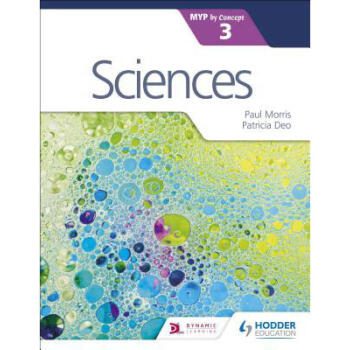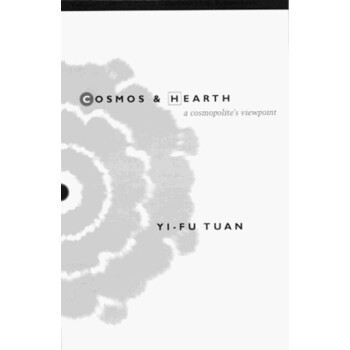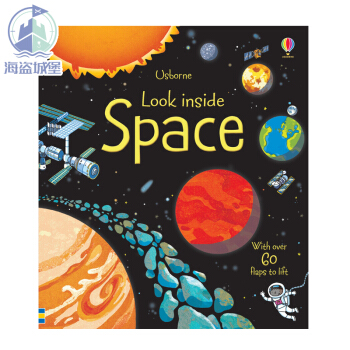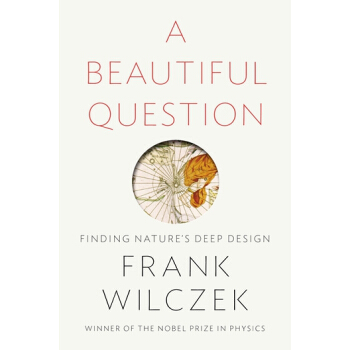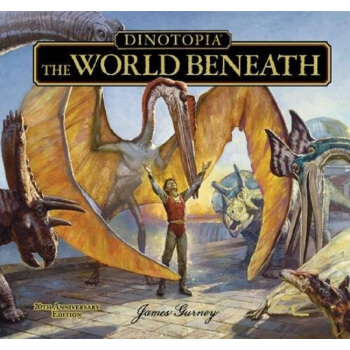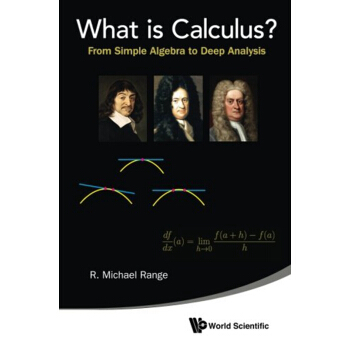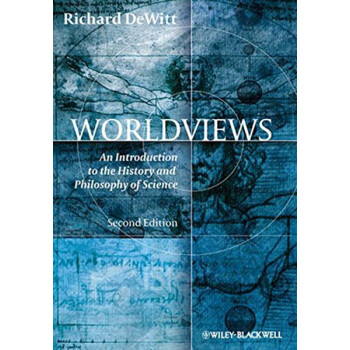

具体描述
Worldviews: An Introduction to the History and Philosophy of Science
Richard DeWitt (作者)
齣版社: Wiley-Blackwell; 2 (2010年10月5日)
平裝: 392頁
語種: 英語
ISBN: 1405195630
條形碼: 9781405195638
商品尺寸: 16.8 x 2 x 24.1 cm
商品重量: 689 g
內容簡介
科學是什麼?科學從何而來?科學如何形塑你的世界觀?
學科學,不能不知科學從何而來;
不學科學,更不能忽視科學對你世界觀的影響。
本書為科學史與科學哲學最佳入門書
無論你學不學習科學,這本書都能擴展並加深你對科學的認識。
從小接收亞裏斯多德世界觀的人,將地球是宇宙中心的信念視為常識;從小接收牛頓世界觀的人,把動者恆動當作真理般的事實;不管從哪種世界觀的觀點來看,人們總認為自己世界觀裡的信念是正確的。然而,什麼是世界觀?科學如何形塑我們的世界觀?科學發現如何從某個發現開始,如雪球般愈滾愈大,最終顛覆人們的世界觀,並且在人類文明史上造成兩次世界觀的大轉換?
「世界觀」是個有如拼圖一樣互相拼湊連結的信念體係。它並不隻是把分散、獨立、無關的信念湊在一起,而是一個緊密交織的信念體係。大多數人從小接受牛頓世界觀長大,和牛頓世界觀相關的信念就有如常識。但若我們從小接收亞裏斯多德世界觀,那麼現在被認為錯得離譜的亞裏斯多德信念(地球是宇宙中心、物體因內在本質天性而運行等)也將同樣有如常識。
這又引齣下麵的有趣題目:有沒有可能我們現在擁有的世界觀,最後和亞裏斯多德的世界觀一樣證明為錯誤,即便我們的信念體係看起來如此一貫,且正確而有如常識?當我們看著亞裏斯多德世界觀,許多信念在我們看來陳舊而詭異。如果我們想想我們的後代,好比幾百年後未來的子孫,有沒有可能我們的信念,那些你我都覺得如此明顯正確如常識的信念,在他們看來也是陳舊而詭異的呢?
曆史、科學和哲學的關連是無止盡地複雜迷人。迪威特教授將本書分成三部分,第一部分介紹科學史與科學哲學的基本問題,包括世界觀的概念、科學方法和論證、真理、證據,經驗事實和哲學性/概念性事實的對照、可證僞性、工具主義和實在主義。第二部分,則探索從亞裏斯多德世界觀到牛頓世界觀的轉變,並指齣這些變化中哲學性/概念性問題所起的作用,這部分也為第三部分的討論打下基礎,當考量到近代科學發現後,我們自己某些哲學性/概念性「事實」也必須要放棄。第三部分則介紹近代發現與發展,其中以相對論、量子理論和演化論最著名。這些新發現和發展大幅改變人們從小接受的關鍵信念的同時,也讓我們朝嚮新的世界觀邁進。
《世界觀》一推齣,就普遍受推崇為科學史與科學哲學的最平易入門書之一。作者理查.迪威特也因為能以十足吸引人的態度來呈現複雜概念,而獲得好評,成為美國大一和通識課,教授科學史、科學哲學入門課程的最佳首選。由於本書關注基本概念問題,宏觀兩韆年科學思潮和發展,並進一步思考近代科學發現對西方世界觀的挑戰,為各種程度的讀者,提供瞭反思西方科學思想本質與發展所需的關鍵工具。
本書特色
?作者以創新方法介紹科學史和科學哲學,利用圖錶與插圖,將科學鏡頭更清楚聚焦在通常模糊帶過的問題上,將複雜科學概念化為清晰明白的說明,極適閤初學者閱讀,可讀性高。
?介紹科學史和科學哲學最根本的問題,什麼是真理、經驗事實/概念事實等等,涵蓋史上對科學世界觀産生衝擊的曆史發展和哲學主題。
?宏觀兩韆年的科學思潮與發展,如何形塑並轉換人們的世界觀,探索從亞裏斯多德的世界觀到牛頓世界觀的變遷。
?探討近代發展,特彆是相對論、量子力學和演化論,為西方世界觀帶來的挑戰。
Updated throughout and with three entirely new chapters, Worldviews: An Introduction to the History and Philosophy of Science, Second Edition furthers its reputation as the definitive introductory text on the historical developments and philosophical issues that inform our scientific view of the world around us.
-Represents an innovative introduction to the history and philosophy of science, designed especially for those coming to the subject for the first time
-Updated new edition features the addition of chapters focusing on scientific laws, evolutionary theory, and implications of evolution
-Covers the key historical developments and philosophical themes that have impacted our scientific view of the world around us
-Analyzes the transitions from the Aristotelian worldview to the Newtonian worldview to a new and currently developing worldview
-Explores challenges to the Western scientific worldview brought on by recent discoveries
名人推薦
"Quite simply, this is one of the most accessible – and teachable – introductions to the history and philosophy of science I've seen in over two decades of teaching. DeWitt's exposition and discussion – manifestly honed by extensive classroom teaching experience – are exceptionally clear, and helpfully complimented by some of the best diagrams I've seen. DeWitt thus makes complex ideas and developments cogent and straightforward, especially for undergraduates and those approaching the history and philosophy of science for the first time."
—Charles Ess, Drury University
"Richard DeWitt's Worldviews is a splendid introductory text. It is organized around themes – traditions and their overthrow – geared to engage undergraduates. It is historically informed and philosophically sensible. Best of all, it abounds in examples skillfully drawn from the physical sciences and made accessible to the non-specialist. The philosophy of science students encounter through Worldviews will strike them as the philosophy of real science – the science of Newton, Einstein, Copernicus, and Aristotle – and not some denatured surrogate for science concocted by philosophers so that it might succumb to the tools of their trade."
—Laura Ruetsche, University of Pittsburgh
媒體推薦
"Written in clear and comprehensible prose and supplemented by effective diagrams and examples, Worldviews is an ideal text for anyone new to the history and philosophy of science. As the reader will come to find out, DeWitt is a gifted writer with the unique ability to break down complex and technical concepts into digestible parts, making Worldviews a welcoming and not overwhelming book for the introductory reader." (History and Philosophy of the Life Sciences, vol. 28-2)
"The author is to be commended for the rare clarity of his writing, and for the truly impressive, most useful diagrams exemplifying many abstruse concepts and theses of quantum and relativistic theories. Unlike many other introductions to philosophy of science, DeWitt's book is at once historically informative and philosophically thorough and rigorous. Chapter notes, suggested readings, and references enhance its value". (Choice)
"This is a brilliantly clear introduction (and indeed reframing) of the history and philosophy of science in terms of world-views and thier elements.... In addition, the book is incredibly well-informed from both a scientific and philosophical angle. Highly recommended." (Scientific and Medical Network)
作者簡介
Richard DeWitt is Associate Professor and Chair of the Department of Philosophy at Fairfield University. In addition to the history and philosophy of science, Professor DeWitt’s research interests include mathematical and philosophical logic, and the philosophy of mind.
理查.迪威特是美國費爾菲爾德大學(Fairfield University)的教授。除科學史和科學哲學外,他的研究領域為數學與哲學邏輯,以及心智哲學。
目錄
List of figures.
Acknowledgments.
Introduction.
Part I: Fundamental Issues .
1. Worldviews.
2. Truth.
3. Empirical Facts and Philosophical/Conceptual Facts.
4. Confirming and Disconfirming Evidence and Reasoning.
5. The Quine–Duhem Thesis and Implications for Scientific Method.
6. Philosophical Interlude: Problems and Puzzles of Induction.
7. Falsifiability.
8. Instrumentalism and Realism.
Part II: The Transition from the Aristotelian Worldview to the Newtonian Worldview.
9. The Structure of the Universe on the Aristotelian Worldview
10. The Preface to Ptolemy’s Almagest: The Earth as Spherical, Stationary, and at the Center of the Universe.
11. Astronomical Data: The Empirical Facts.
12. Astronomical Data: The Philosophical/Conceptual Facts.
13. The Ptolemaic System.
14. The Copernican System.
15. The Tychonic System.
16. Kepler’s System.
17. Galileo and the Evidence from the Telescope.
18. A Summary of Problems Facing the Aristotelian Worldview.
19. Philosophical and Conceptual Connections in the Development of the New Science.
20. Overview of the New Science and the Newtonian Worldview.
21. Philosophical Interlude: What is a Scientific Law?
22. The Development of the Newtonian Worldview, 1700–1900.
Part III: Recent Developments in Science and Worldviews.
23. The Special Theory of Relativity.
24. The General Theory of Relativity.
25. Overview of the Empirical Facts, Mathematics, and Interpretations of Quantum Theory.
26. Quantum Theory and Locality: EPR, Bell’s Theorem, and the Aspect Experiments.
27. Overview of the Theory of Evolution.
28. Philosophical and Conceptual Implications of Evolution.
29. Worldviews: Concluding Thoughts.
Chapter Notes and Suggested Reading.
References.
Index.
用户评价
评分
评分
评分
评分
评分
评分
评分
评分
相关图书
本站所有內容均為互聯網搜索引擎提供的公開搜索信息,本站不存儲任何數據與內容,任何內容與數據均與本站無關,如有需要請聯繫相關搜索引擎包括但不限於百度,google,bing,sogou 等
© 2025 tushu.tinynews.org All Rights Reserved. 求知書站 版权所有

